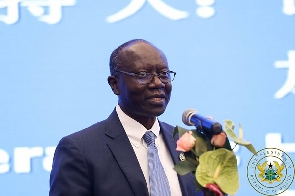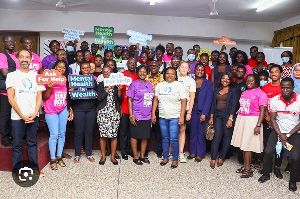Finance Minister, Ken Ofori-Atta, has indicated that Ghana would need about $12.5 billion to build a climate-resilient economy.
He believes that investment in climate-resilience cannot be underestimated and must therefore be prioritized.
Addressing participants at the Global Shield Initiative and the Global Risk Modelling Alliance Workshop, the finance minister provided a breakdown of the funds needed to be generated from the national level and the international levels.
“Africa has, over the last two decades, lost over $200 billion due to climate change; and in Ghana alone we require $4.21 billion (34%) at the national level and $8.29 billion (66%) from international sources to meet the cost of implementing our adaptation actions according to our NDCs,” Ken Ofori-Atta said.
“In order to build a climate-resilient economy and transition to a low-carbon development pathway, it is imperative that we make informed decisions based on reliable data at both the national and subnational levels in order to minimise the impact of climate change and enable development-positive climate action,” he added.
Meanwhile, Minister for Environment, Science, Technology and Innovation, Dr. Kwaku Afriyie on his part underscored the importance of investing in low-carbon transition and adaptation in Ghana’s energy mix.
“Science is clear and we need to pay close attention to the counsel of scientists because failing to do so will only put the lives of our people in jeopardy. Evidence-based analysis and results should help us design people-centered new investments toward a low-carbon transition and adaptation we most urgently need to fortify our economies, supply chains, and communities against accelerating climate-fueled risks,” he emphasised.
Global Risk Modelling Alliance is an initiative that aims to assess Ghana’s risk and offer essential data for decision-making on solutions to manage climate risks and drive new adaptation investments.
In addition, Global Shield is aimed at establishing pre-arranged, trigger-based financing mechanisms to ensure timely and effective responses to climate-related challenges when they arise.
MA/FNOQ
Business News of Friday, 7 July 2023
Source: www.ghanaweb.com

















